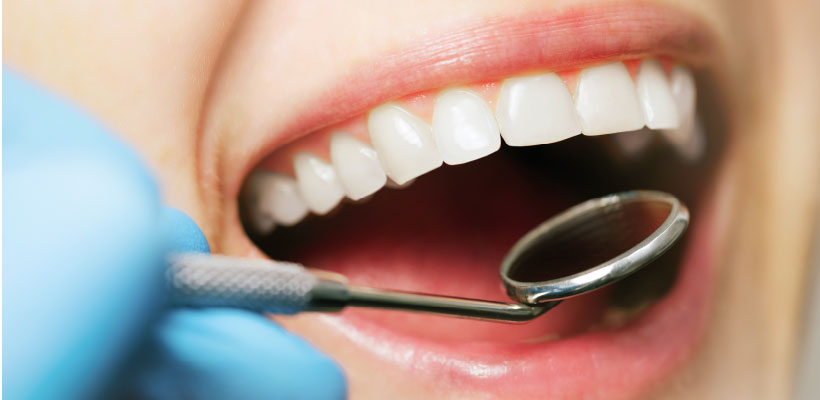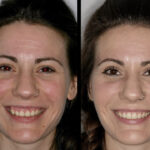
Before starting,
read this information
Before starting treatment, the patient should have detailed information on the possibilities, conditions and objectives of the proposed outcome and possible incidents and complications that may arise. The following information is useful for the patient to take a conscious decision before undergoing the treatment, accepting all the terms.
The functional and aesthetic possibilities of orthodontic treatment in patients are conditioned by the following factors:
Age of the patient.
Severity of bad dental positions and bone abnormalities.
State of health of the teeth and their coverage (periodontal).
Need of surgery of the jaw bones.
Individual and hereditary factors.
Natural response to treatment.
Interest and patient expectations.
In order to protect the vitality of the teeth and avoid painful discomfort, movements should be soft and delicate, light forces applying continuous action.
For their high efficiency, braces are preferred, whose satisfactory cosmetic appearance is compatible with social and professional activities of the patients, in specific cases it may be necessary to use a removable apparatus that must be used following the instructions you receive.
The determining factors mentioned above determine the total duration of treatment with an approximate completion date, difficult to know in advance. Always trying that the treatment does not exceed the time accepted by the patient and of course provided that the desired result is achieved.
When orthodontic treatment requires maxillofacial surgery, specialists (orthodontist and maxillofacial surgeon) should work together each taking their own responsibilities in the result.
To ensure healthy teeth and gums and the effect of the apparatus, you must observe a scrupulous and daily dental hygiene; if the patient has gum problems prior it is necessary to attend to the maintenance of the gums throughout the duration of orthodontic treatment.
The patient should be given continued cooperation in the instructions and keep all scheduled visits. Any failure in this regard may unnecessarily complicate and lengthen the treatment.
The patient may stop treatment if desired, in writing accepting full responsibility for your decision.
Great results await you
Although satisfactory functional and aesthetic results are obtained in most cases, the patient should not take extreme expectations that exceed the limitations of orthodontic treatment in adults.
The products and materials used during treatment have a guarantee of quality backed towards their manufacturers, but as in other dental or medical treatment, the practitioner can only guarantee their own interest, effort and dedication to achieve the objectives of the treatment, according the possibilities and limitations of each case.
INCIDENTS AND POSSIBLE COMPLICATIONS
As with the rest of dentistry, orthodontic treatment is also exposed to certain incidents and complications beyond the control of the orthodontist, but they are rare and have appropriate solution. To avoid negative experiences and complaints, the patient should know and admit certain contingencies during and after treatment.


Caries, dental stains and gum inflammation are usually due to poor brushing of the teeth, the possibility of these symptoms is greater when fixed apparatus are carried and hygiene is not adequate.

Sometimes the apparatus can cause painful sore teeth, tooth mobility and irritation of gums, lips and cheeks. These disadvantages tend to be early and resolve quickly after the initial period of getting used to the device. In case of persistence, the patient is advised to go immediately to the clinic.

The soft tissues that support the teeth (periodontal) may be affected by the action of the treatment, but is more likely to occur by excessive accumulation of plaque and poor gum hygiene.

When the teeth have suffered trauma, have extensive fillings, prosthetic reconstruction or have lost nerve, treatment may be more complex and limited. In these cases the orthodontist may request the assistance of the dentist or appropriate specialist.

Some patients are prone to a shortening of the dental roots as an inevitable reaction to treatment. Usually this issue has no serious consequences, unless extended, in which case you should use an appropriate treatment by the dentist or appropriate specialist.

Occasionally discomfort may occur in the jaw joint during or after treatment. The orthodontist should find out the origin and significance of such discomfort and may require the cooperation of the relevant dentist or specialist.

When treatment requires tooth extractions or surgery orthognathic surgery, these interventions must be made by the dentist or surgeon, who will inform the patient about the possible problems and complications that may arise without the orthodontist take some responsibility.

Once orthodontic treatment is finished, you may want some cosmetic restoration of teeth abnormalities in size, shape or color, speak to your dentist about this.

Upon completion of treatment teeth tend to return to their original position, which is prevented by the use of simple and aesthetic retainer. The duration of this important period of consolidation is often prolonged, and in some cases permanent. Any relapse occurred for not using it should not be imputed to the orthodontist.




